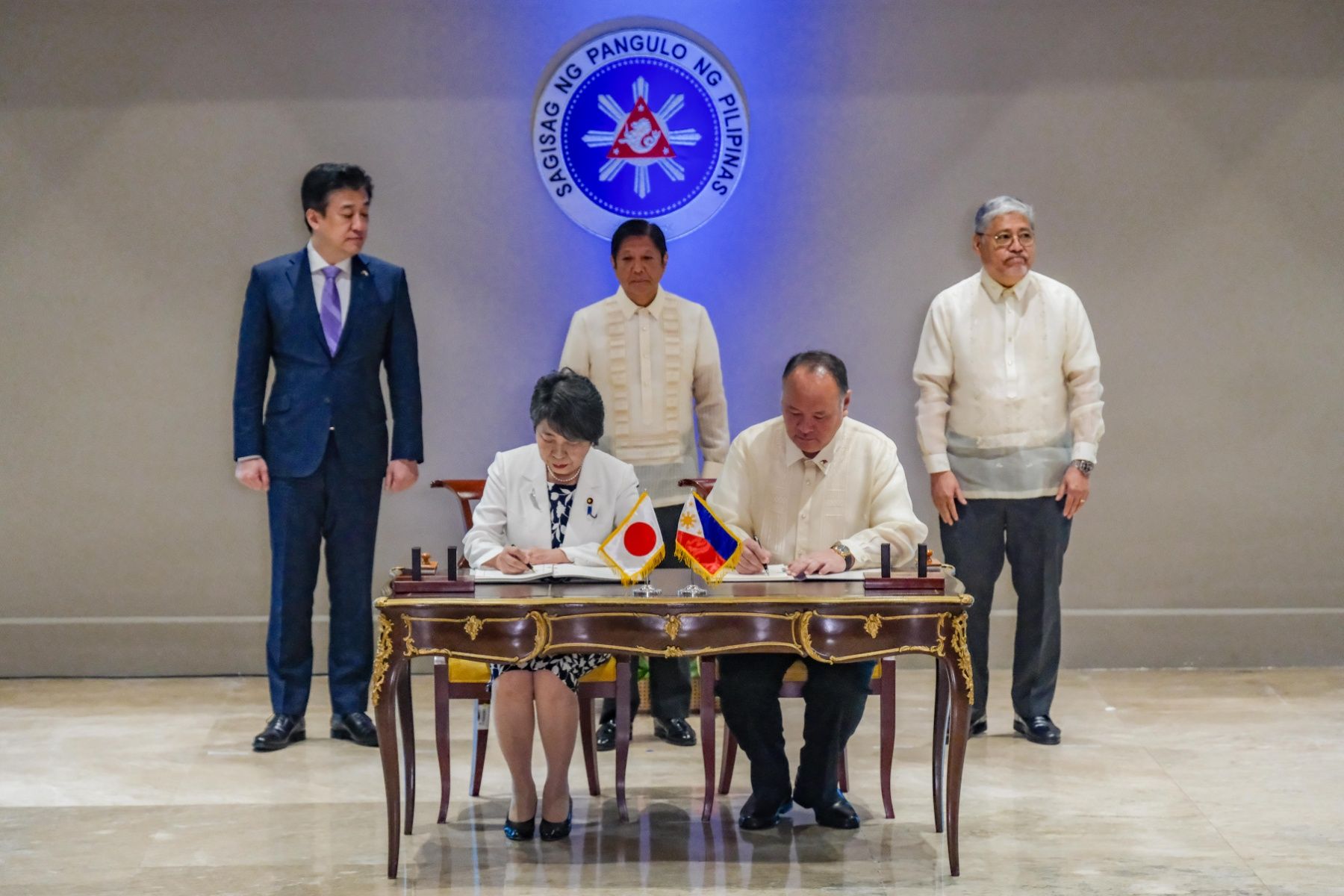Senators back signing of Reciprocal Access Agreement between Philippines, Japan
By Dhel Nazario
Senators on Monday, July 8, expressed support to the signing of the Reciprocal Access Agreement (RAA) between the Philippines and Japan that would allow both countries to send military forces to each other's territory for joint drills.

Senate President Francis "Chiz" Escudero said that anything that strengthens and increases the country's military capability is a "deterrence to a possible conflagration.”
"I fully support this agreement/arrangement," he added.
Senate President Pro Tempore Jinggoy Ejercito Estrada, who chairs the Senate Committee on National Defense and Security said that any strategic partnership that strengthens our country’s close security relationship with a regional partner is an encouraging and welcome development.
"The signing of the Reciprocal Access Agreement (RAA) demonstrates the mutual commitment of Japan and the Philippines to uphold a rules-based international order, particularly in response to regional security threats," he said.
He added that aside from joint military exercises, the RAA plays a crucial role in coordinating humanitarian assistance and disaster relief operations, given the frequent occurrence of natural disasters in the region requiring rapid and coordinated response efforts.
He also mentioned that most of the newest vessels of the Philippine Coast Guard (PCG) were acquired through a project funded by Japan to enhance maritime safety capabilities.
"I will see to it that the ratification of the RAA will be among the priority agenda of the Senate when we open the 3rd Regular Session later this month," he said.
Senator Imee Marcos, chairperson of the Senate Committee on Foreign Relations welcomed having stronger security ties with Philippine neighbors in the Asia-Pacific region.
"However, as with other treaties, the Senate Committee on Foreign Relations will scrutinize every line and every word of that treaty once the same is referred to us to make sure that it is aligned with the national interest of the country," she added.
Former Senate President Juan Miguel “Migz” Zubiri, a long-time advocate of the RAA, lauded its signing stating that the agreement is a partnership of like-minded nations that will truly bolster the country’s naval training and use of ships and equipment purchased from Japan, further strengthening the Philippines’ defense and security in the Asia-Pacific region.
“It was in 2022 when then-Ambassador to the Philippines Koshikawa Kazuhiko and I first discussed the possibility of pursuing a Reciprocal Access Agreement between our countries, and I brought this idea to President Marcos early into his administration,” Zubiri expressed.
“So, I welcome this signing, and I am very hopeful that it will be a key partnership for achieving peace in the region.”
Zubiri emphasized that the RAA signing would strengthen the strategic partnership between the Philippines and Japan, which he described as an “invaluable ally” to the Philippines.
“Japan is already an invaluable ally, and their assistance has been vital to the modernization of our Coast Guard and Navy. With this RAA, we can further strengthen our capacity-building through joint military exercises,” he said.
Zubiri has consistently pushed for the RAA during various meetings with Japanese officials, including President Marcos’ visit to Japan in February 2023 and the Senate’s own parliamentary visit to Japan in April 2023, where they met with Prime Minister Kishida Fumio.
The Prime Minister, upon the invitation of Zubiri, then came to the Philippines in November 2023 to give a historic policy speech during a joint session of the Philippine Congress. In this speech, he confirmed that he and President Marcos were in concurrence over the need to pursue the RAA.
“Our persistence has paid off, and now we can look forward to strengthened security and defense cooperations under the RAA,” Zubiri said.
Senator Grace Poe said it’s important to cooperate with like-minded countries, especially our neighbors and uphold mutual interests.
She mentioned that the agreement most likely needs concurrence if it is like a mutual defense treaty.
Senator Joseph Victor "JV" Ejercito said that the signing of the RAA is a welcome development in terms of regional security and against China’s continued expansionism.
"Since the Philippines is a third-world country, all the help and assistance we can get from traditional allies and right-minded nations is definitely much welcomed against China’s continued bullying and aggression towards us," he added.
Meanwhile, Senate Minority Leader Aquilino "Koko" Pimentel said that the Philippines "should be entering more agreements of an economic nature (instead of a military nature) which would allow us to sell Philippine-made and Philippine-grown products/items to other countries."
"Sana ganyan ang laman ng mga agreements natin. Produkto hindi pulbura (Our agreement should include those. Products not gunpowder)," he added.
In a ceremonial signing witnessed by President Marcos in Malacañan on Monday morning, July 8, the RAA was signed by Defense Secretary Gilbero Teodoro and Japanese Foreign Minister Kamikawa Yoko.